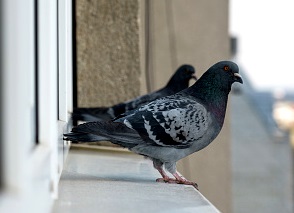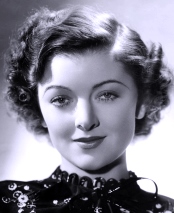
by NONA BLYTH CLOUD
Mary Jo Salter is an American poet, essayist, playwright, lyricist and editor, born August 15, 1954,
in Grand Rapids, Michigan. She is a former editor at the Atlantic Monthly, poetry editor at the New Republic, and co-editor of the fourth and fifth editions of the Norton Anthology of Poetry.
___________________________
Home Movies: A Sort of Ode
Because it hadn’t seemed enough,
after a while, to catalogue
more Christmases, the three-layer cakes
ablaze with birthday candles, the blizzard
Billy took a shovel to,
Phil’s lawnmower tour of the yard,
the tree forts, the shoot-’em-ups
between the boys in new string ties
and cowboy hats and holsters,
or Mother sticking a bow as big
as Mouseketeer ears in my hair,
my father sometimes turned the gaze
of his camera to subjects more
artistic or universal:
long closeups of a rose’s face;
a real-time sunset (nearly an hour):
what surely were some brilliant autumn
leaves before their colors faded
to dry beige on the aging film;
a great deal of pacing, at the zoo,
by polar bears and tigers caged,
he seemed to say, like him.
What happened between him and her
is another story. And just as well
we have no movie of it, only
some unforgiving scowls she gave
through terrifying, ticking silence
when he must have asked her (no
sound track) for a smile.
Still, what I keep yearning for
isn’t those generic cherry
blossoms at their peak, or the brave
daffodil after a snowfall,
it’s the re-run surprise
of the unshuttered, prefab blanks
of windows at the back of the house,
and how the lines of aluminum
siding are scribbled on with meaning
only for us who lived there;
it’s the pair of elephant bookends
I’d forgotten, with the upraised trunks
like handles, and the books they meant
to carry in one block to a future
that scattered all of us.
And look: it’s the stoneware mixing bowl
figured with hand-holding dancers
handed down so many years
ago to my own kitchen, still
valueless, unbroken. Here
she’s happy, teaching us to dye
the Easter eggs in it, a Grecian
urn of sorts near which—a foster
child of silence and slow time
myself—I smile because she does
and patiently await my turn.

“Home Movies: A Sort of Ode” from A Kiss in Space: Poems, © 1999 by Mary Jo Slater – Alfred A. Knopf
___________________________
___________________________
The Buttonhook
President Roosevelt, touring Ellis Island
in 1906, watched the people from steerage
line up for their six-second physical.
Might not, he wondered aloud, the ungloved handling
of aliens who were ill infect the healthy?
Yet for years more it was done. I imagine
my grandmother, a girl in that Great Hall’s
polyglot, reverberating vault
more terrible than church, dazed by the stars
and stripes in the vast banner up in front
where the blessed ones had passed through. Then she did too,
to a room like a little chapel, where her mother
might take Communion. A man in a blue cap
and a blue uniform—a doctor? a policeman?
(Papa would have known, but he had sailed
all alone before them and was waiting
now in New York; yet wasn’t this New York?)—
a man in a blue cap reached for her mother.
Without a word (didn’t he speak Italian?)
he stuck one finger into her mother’s eye,
then turned its lid up with a buttonhook,
the long, curved thing for doing up your boots
when buttons were too many or too small.
You couldn’t be American if you were blind
or going to be blind. That much she understood.
She’d go to school, she’d learn to read and write
and teach her parents. The eye man reached to touch
her own face next; she figured she was ready.
She felt big, like that woman in the sea
holding up not a buttonhook but a torch.

“The Buttonhook” from The Surveyors: Poems, © 2017 by Maru Jo Slater – Borzoi Book/Alfred A. Knopf
___________________________
Her first collection of poetry, Henry Purcell in Japan, was published in 1985. Her many books of poetry include A Kiss in Space (1999), Open Shutters (2003), A Phone Call to the Future (2008), Nothing by Design (2013), and The Surveyors (2017). Her second book, Unfinished Painting (1989) was a Lamont Selection for the most distinguished second volume of poetry published that year; and Sunday Skaters (1994) was nominated for a National Book Critics Circle Award.
Two Pigeons
They’ve perched for hours
on that window-ledge, scarcely
moving. Beak to beak,
a matched set, they differ
almost imperceptibly—
like salt and pepper shakers.
It’s an event when they tuck
(simultaneously) their pinpoint
heads into lavender vests
of fat. But reminiscent
of clock hands blandly
turning because they must
have turned—somehow, they’ve
taken on the grave,
small-eyed aspect of monks
hooded in conferences
so intimate nothing need
be said. If some are chuckling
in the park, earning
their bread, these are content
to let the dark engulf them—
it’s all the human
imagination can fathom,
how single-mindedly
mindless two silhouettes
stand in a window thick
as milk glass. They appear
never to have fed on
anything else when they stir
all of a sudden to peck
savagely, for love
or hygiene, at the grimy
feathers of the other;
but when they resume
their places, the shift
is one only a painter
or a barber (prodding a chin
back into position)
would be likely to notice.

“Two Pigeons” from Henry Purcell in Japan, © 1984 by Mary Jo Salter –Alfred A. Knopf
___________________________
John Lennon
The music was already turning sad,
those fresh-faced voices singing in a round
the lie that time could set its needle back
and play from the beginning. Had you lived
to eighty, as you’d wished, who knows?—you might
have broken from the circle of that past
more ours than yours. Never even sure
which was the truest color for your hair
(it changed with each photographer), we claimed
you for ourselves; called you John and named
the day you left us (spun out like a reel—
the last broadcast to prove you’d lived at all)
an end to hope itself. It isn’t true,
and worse, does you no justice if we call
your death the death of anything but you.
II
It put you in the headlines once again:
years after you’d left the band, you joined
another—of those whose lives, in breaking, link
all memory with their end. The studio
of history can tamper with you now,
as if there’d always been a single track
chance traveled on, and your discordant voice
had led us to the final violence.
Yet like the times when I, a star-crossed fan,
had catalogued your favorite foods, your views
on monarchy and war, and gaily clipped
your quips and daily antics from the news,
I keep a loving record of your death.
All the evidence is in—of what,
and to what end, it’s hard to figure out,
riddles you might have beat into a song.
A younger face of yours, a cover shot,
peered from all the newsstands as if proof
of some noteworthy thing you’d newly done.

“John Lennon” from Henry Purcell in Japan, © 1984 by Mary Jo Salter – Alfred A. Knopf
___________________________
Video Blues
My husband has a crush on Myrna Loy,
and likes to rent her movies, for a treat.
It makes some evenings harder to enjoy.
The list of actresses who might employ
him as their slave is too long to repeat.
(My husband has a crush on Myrna Loy,
Carole Lombard, Paulette Goddard, coy
Jean Arthur with that voice as dry as wheat …)
It makes some evenings harder to enjoy.
Does he confess all this just to annoy
a loyal spouse? I know I can’t compete.
My husband has a crush on Myrna Loy.
And can’t a woman have her dreamboats? Boy,
I wouldn’t say my life is incomplete,
but some evening I could certainly enjoy
two hours with Cary Grant as my own toy.
I guess, though, we were destined not to meet.
My husband has a crush on Myrna Loy,
which makes some evenings harder to enjoy.

“Video Blues” from A Kiss in Space. © 1999 by Mary Jo Salter – Alfred A. Knopf
___________________________
Open Shutters was a New York Times Notable Book of the Year. Salter is also the author of a children’s book, The Moon Comes Home (1989); the play, Falling Bodies (2004); and she wrote the lyrics for the song cycle Rooms of Light, in collaboration with composer Fred Hersch. It debuted at Lincoln Center in 2007.
Discovery
6:48 a.m., and leaden
little jokes about what heroes
we are for getting up at this hour.
Quiet. The surf and sandpipers running.
T minus ten and counting, the sun
mounting over Canaveral
a swollen coral, a color
bright as camera lights. We’re blind-
sided by a flash:
shot from the unseen
launching pad, and so from nowhere,
a flame-tipped arrow—no, an airborne
pen on fire, its ink a plume
of smoke which, even while zooming
upward, stays as oddly solid
as the braided tail of a tornado,
and lingers there as lightning would
if it could steal its own thunder.
—Which, when it rumbles in, leaves
under or within it a million
firecrackers going off, a thrill
of distant pops and rips in delayed
reaction, hitting the beach in fading
waves as the last glint of shuttle
receives our hands’ eye-shade salute:
the giant point of all the fuss soon
smaller than a star.
Only now does a steady, low
sputter above us, a lawn mower
cutting a corner of the sky,
grow audible. Look, it’s a biplane!—
some pilot’s long-planned, funny tribute
to wonder’s always-dated orbit
and the itch of afterthought. I swat
my ankle, bitten by a sand gnat:
what the locals call no-see-’ums.
“Discovery” from Open Shutters, © 2003 by Mary Jo Salter – Alfred A. Knopf
___________________________
Somebody Else’s Baby
From now on they always are, for years now
they always have been, but from now on you know
they are, they always will be,
from now on when they cry and you say
wryly to their mother, better you than me,
you’d better mean it, you’d better
hand over what you can’t have, and gracefully.

“Somebody Else’s Baby” from A Phone Call to the Future: New and Selected Poems, © 2008 by Mary Jo Salter – Borzoi Book/Alfred A. Knopf
___________________________
Salter’s most acclaimed poems pay tribute to classical poetic forms even while working around them, and often speak to her experiences traveling in other countries, including Iceland, Italy, Japan, France, and England.
Goodbye Train
I’m stepping off the train behind a pair
of thirtysomethings with their baby daughter.
The father will stay fit for years, I think,
Though here and there, his hair’s a little thin;
The mother’s confident in new blue jeans
She knows are sexy—but carefully, tastefully so.
Seeing them floods me at once—I can’t say why—
With solicitude. Delight, and envy. Pain
“Goodbye, train,” the mother says, and then,
“Say ‘goodbye, train.’ ‘bye bye.’” She waves her hand
Theatrically, the way we often will
With children, so that nobody can find us
Guilty, ourselves, of any silliness—
Of joy in the trainman’s cap, his ticket-punch.
The little girl is propped on her father’s hip
And pointing vaguely at a world of things
She’s just come to know, and which now must go away.
How grave she seems!—a toothless oracle.
I see too how I look, if anyone’s looking:
A weathered niceness, a trudging competence.
That’s how I follow, twenty years ahead
Of the parents, as I lug my bags behind them,
Vowing to keep a stranger’s proper distance—
As I did from those two lovesick teenagers
Clinging in tears some stations back, when he
Prepared himself to be left there on the platform
By a girl who swore it wasn’t possible,
And both were stunned to discover that it was.
I think what luck it is, to be one who says
Goodbye to trains instead of other people.

“Goodbye Train” from A Phone Call to the Future: New and Selected Poems, © 2008 by Mary Jo Salter – Borzoi Book/Alfred A. Knopf
___________________________
One of the frequent criticisms of many writers who are women is that they “avoid the big themes” and write about the “domestic” side of life, implying that this makes them less important writers than men who write about “Life” with a capital L – Art, Work, War, Politics and Death.
The part of life covered by these “domestic” writers includes Birth, Love, Marriage, Work, Family, Death, and sometimes even Art, War and Politics. Their themes aren’t smaller – they take up the overwhelming majority of time in the lives of the overwhelming majority of people, regardless of gender.
It may be time for some critics to re-examine their assumptions.
Mary Jo Salter is both a sharp-eyed observer of, and participant in, the ordinary and extraordinary events of life, with or without a capital L, which fuel her work.
___________________________
Images
- Easter egg critters
- Buttonhook eye inspection at Ellis Island
- Two pigeons on a window ledge
- John Lennon
- Myrna Loy – photograph by George Hurrell
- NASA’s Discovery
- Baby holding mother’s finger
- Little girl waving bye bye
Word Cloud photo by Larry Cloud
